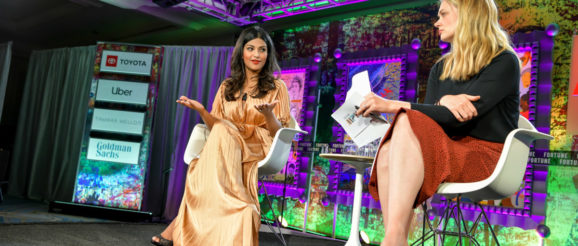How Equality Sparks Innovation

This is the web version of CEO Daily. To get it delivered to your inbox, sign up here.
Good morning.
For more than 20 years, Fortune has celebrated women in business leadership, and pushed companies to elevate more. For me, the business justification always has been obvious: women make up half the talent pool, and their scarcity in the top ranks of business is a clear sign of resources misused.
But at this year’s Fortune Most Powerful Women NextGen conference, the folks from Accenture (a sponsor of the event) touted research that takes the argument further. Companies that embrace diversity also are more likely to have a culture of innovation. And in these disruptive times, what company doesn’t need a culture of innovation?
The Accenture research is part art, part science. They looked at companies that had a “culture of equality”—which included an “empowering environment” (trust, freedom, workplace flexibility, training), a diverse leadership team, and bias-free and family-friendly policies. And then they surveyed thousands of employees about whether the company encouraged an innovation mindset—allowing experimentation, encouraging information sharing, providing workers the time and autonomy to innovate, etc.
The result: a clear connection between the two. Employees of companies with the most equal culture were more likely to say “nothing stops me from innovating” at work (40%) than those from the least equal cultures (7%); and they were far more likely to say “I am not afraid to fail in the pursuit of innovation” (85%) than those in the least equal cultures (36%).
Other highlights of day two of the NextGen conference:
“It’s not surprising that more than 51% of unicorns have at least one founder as an immigrant…It’s crazy what immigrants have to go through to live their American dream, but at the same time they’re tremendously contributing to the economy.”
—Purva Gupta, co-founder and CEO of Lily AI
“We try to make sure we don’t glamorize valuation, we don’t glamorize fundraising, we don’t glamorize metrics that are not related to margins or profitability or attention—things that will matter in the long run. I actually think women tend to do it less because we question ourselves a bit more and we try to always be sure of our achievements before we claim them.”
—Zilingo CEO Ankiti Bose, on avoiding becoming a “unicorn asshole”
You can find more from the summit here. Other news below.
Alan Murray
@alansmurray
[email protected]
